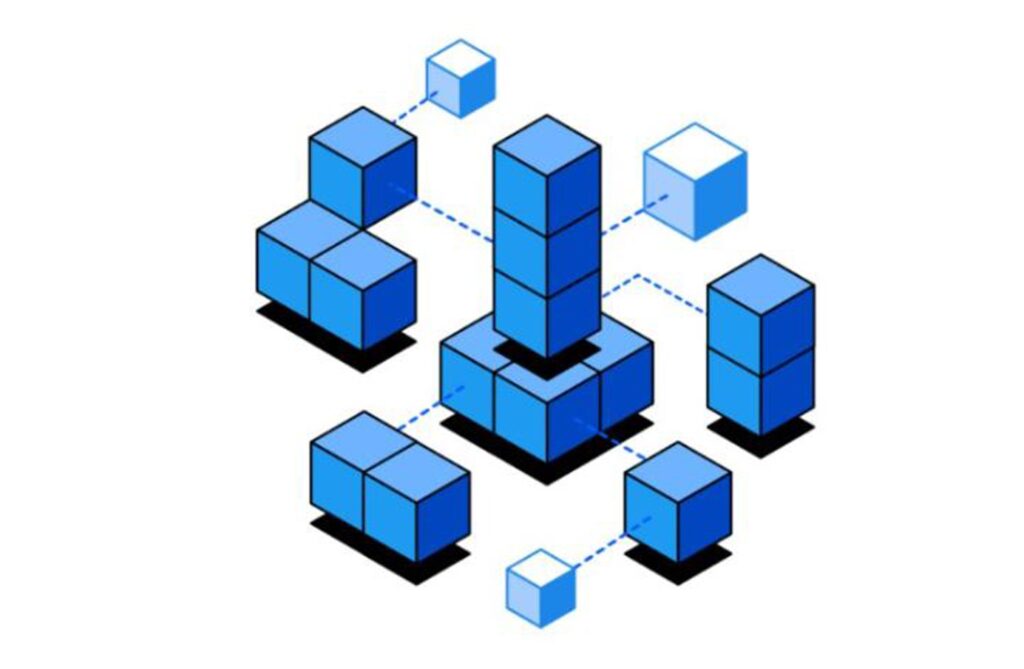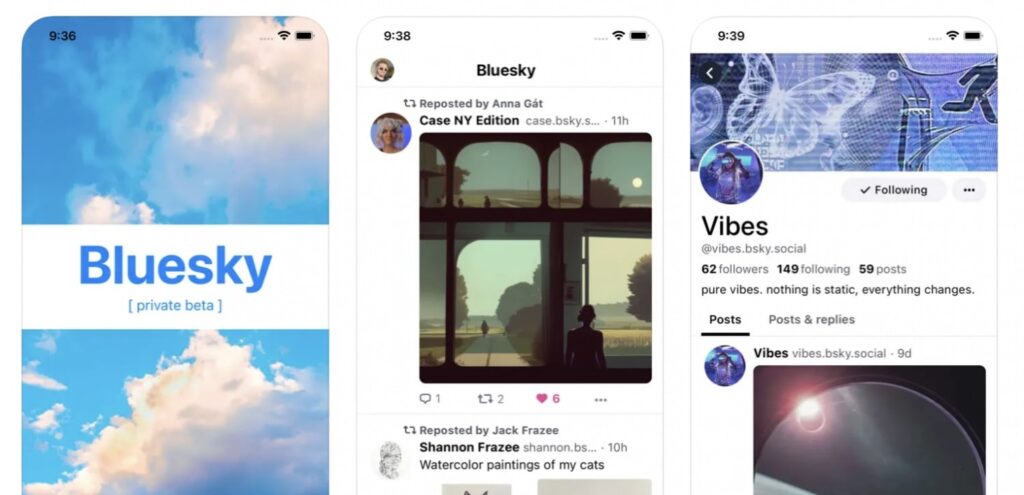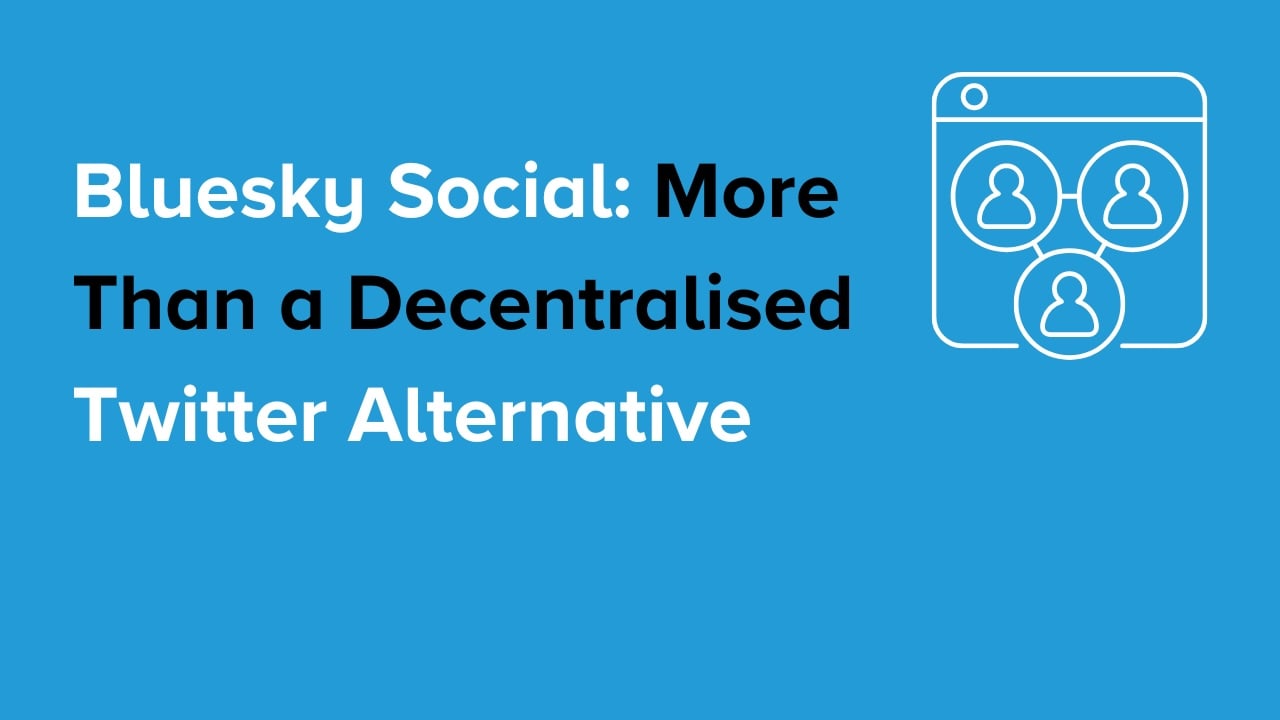In the ever-evolving landscape of social media, whispers of a Twitter rival have been stirring for quite some time. Enter Bluesky, a decentralized protocol poised to revolutionize the way we connect and share information online. But for those unfamiliar with the tech jargon, what exactly is Bluesky, and how can a Bluesky clone—much like building a dog walking app—be your ticket to a new social media frontier?
Unveiling the Mystery: What is Bluesky?
Bluesky, backed by the visionary mind of Jack Dorsey, is not a singular platform, but rather a set of open-source protocols that empower developers to build their own social media applications. This decentralized approach stands in stark contrast to the centralized nature of giants like Twitter and Facebook, where users are beholden to the whims and algorithms of a single entity.

Purpose: A Breath of Fresh Air in the Social Media Atmosphere
Bluesky’s core purpose is to empower users and foster a more open and democratic social media landscape. This is achieved through several key features:
- Decentralization: No single entity controls the data or content, reducing the risk of censorship and manipulation.
- Interoperability: Users can seamlessly connect and interact across different Bluesky-based platforms, breaking down walled gardens and fostering collaboration.
- Privacy: Data is stored and managed by individual users, giving them greater control over their online footprint.
- Transparency: The open-source nature of the protocols allows for greater scrutiny and accountability.
Twitter Rival: A Worthy Contender?
While comparisons to Twitter are inevitable, Bluesky offers a fundamentally different experience. Think of it as a blank canvas where developers can paint their own visions of social media. This could lead to a vibrant ecosystem of diverse platforms catering to specific niches and interests, offering users a more personalized and enriching experience.
Weighing the Scales: Pros and Cons of a Bluesky Clone
Pros:
- Escape the Algorithm: Break free from the echo chambers and targeted advertising that dominate centralized platforms.
- Own Your Data: Take control of your online presence and manage your privacy with greater autonomy.
- Support Innovation: Be a part of a burgeoning ecosystem of diverse and experimental social media experiences.
- Contribute to the Future: Shape the future of social media by participating in an open and collaborative development process.
Cons:
- Early Stage: The Bluesky ecosystem is still in its early stages, with limited platform availability and a smaller user base compared to established giants.
- Technical Complexity: Building and navigating Bluesky-based platforms may require some technical knowledge, posing a barrier for less tech-savvy users.
- Uncertain Future: The long-term success of Bluesky and its clones depends on community adoption and developer engagement, making it a somewhat risky proposition.

Future Prospects: A Glimpse into the Horizon
While the future of Bluesky and its clones remains unwritten, the potential is undeniable. Imagine a social media landscape where users are empowered, communities thrive, and innovation flourishes. This is the vision that Bluesky offers, and it’s a vision worth pursuing.

In summary, these Bluesky-based platforms exemplify the versatility and transformative potential of the decentralized social media model. Whether facilitating discussions on cryptocurrency, aiding in post-disaster recovery, or championing free speech, these case studies underscore the adaptability of Bluesky Clone to diverse needs and community contexts.
Decentralized social networking represents a paradigm shift from traditional, centralized platforms by distributing control and ownership among users. In this model, data is not stored on a single server owned by a company, but rather across a network of nodes. This decentralization offers several advantages, including increased user privacy and security. Users retain ownership of their data, reducing the risk of large-scale data breaches or misuse by centralized entities.
Additionally, decentralized social networks often utilize blockchain technology, providing transparency, immutability, and censorship resistance. As a result, users have greater autonomy and control over their online presence, fostering a more democratic and user-centric social experience.
The use of blockchain in decentralized social networking enables the creation of user-driven ecosystems with native tokens, allowing users to be rewarded for their contributions to the network. This tokenization incentivizes active participation, content creation, and engagement, creating a more vibrant and dynamic social environment.
The elimination of intermediaries in content moderation and dissemination empowers users to shape the platform’s policies, fostering a more diverse and inclusive online community.
However, challenges exist in the widespread adoption of decentralized social networking. Overcoming network effects from established centralized platforms and addressing scalability concerns are critical hurdles. As the technology evolves, developers and communities are actively working on addressing these challenges to make decentralized social networking a viable and attractive alternative for a broader user base.
The potential societal impact of decentralized social networking is significant, offering a more democratic, resilient, and user-centric approach to online interaction. As the technology continues to mature, decentralized social networking could redefine the landscape of online communication and community-building.
Glossary of Key Terms: Unraveling the Language of Bluesky Clone
Decentralization: Decentralization refers to the distribution of power and control across a network rather than being concentrated in the hands of a single entity. In the context of Bluesky Clone, decentralization is a fundamental principle that ensures decision-making authority is distributed among various nodes, enhancing resilience, and fostering a more democratic and transparent system.
Interoperability: Interoperability is the capability of different systems to communicate and exchange data seamlessly with each other. In the realm of Bluesky Clone, interoperability is crucial for ensuring that various pods (servers running Bluesky-based platforms) can interact harmoniously, enabling users to connect and share information across the decentralized network effortlessly.
Open-source: Open-source refers to software whose source code is made freely available to the public. Users have the freedom to inspect, modify, and redistribute the software. Bluesky Clone, being an open-source platform, encourages collaboration, innovation, and transparency, allowing developers and users to contribute to the platform’s evolution and improvement.
Protocol: A protocol is a set of rules and standards that govern communication between different systems. In the context of Bluesky Web Clone, protocols are the backbone of the decentralized network, ensuring that pods and users can interact in a standardized and secure manner. Well-defined protocols contribute to the overall stability and reliability of the Bluesky Clone ecosystem.
Pod: A pod in the Bluesky Clone context refers to an individual server running a Bluesky-based platform. Each pod operates independently and may have its unique features and community. These pods contribute to the decentralized nature of Bluesky Clone, providing a distributed infrastructure where users can engage with content and connect with others. Pods play a pivotal role in shaping the user experience, allowing for diversity and customization within the broader Bluesky Clone network.
Understanding these key terms is essential for navigating the intricate landscape of Bluesky website Clone. Decentralization ensures a democratic and resilient network, interoperability facilitates seamless communication, open-source principles encourage collaboration and transparency, protocols establish standardized communication, and pods create a diverse and customizable user experience. Together, these elements form the foundation of Bluesky Clone, setting the stage for a new era in decentralized social media.
Introducing Miracuves: Your Gateway to the Bluesky Beyond
Are you ready to take the leap into the exciting world of Bluesky? Look no further than Miracuves, your one-stop solution for building and managing your own Bluesky-powered platform. With our comprehensive suite of tools and expert guidance, Miracuves empowers you to:
- Develop your dream platform: Whether it’s a niche community forum, a professional networking hub, or a platform for creative expression, Miracuves provides the tools to bring your vision to life.
- Navigate the technical complexities: Our team of experts will guide you through every step of the process, from setting up your server to customizing your platform’s features.
- Grow your community: Reach new audiences and foster meaningful connections through Miracuves’ marketing and engagement tools.
Join the Bluesky Revolution with Miracuves!
The future of social media is decentralized, open, and empowering. Be a part of this revolution with Miracuves and build your own corner of the Bluesky universe Just Like X. Visit our website today and let’s create a brighter, more connected online world together.
Get Started Now.
Visit Miracuves and begin your journey to start building your Bluesky clone today with Bluesky Website & Bluesky App!
Technical Considerations:
- Platform Development:
- Develop a robust and scalable platform that can handle millions of users and a high volume of tweets.
- Consider the technology stack, including databases, servers, and programming languages.
- User Authentication and Security:
- Implement secure user authentication to protect user accounts.
- Prioritize user data privacy and adhere to data protection regulations.
- Real-time Functionality:
- Ensure real-time updates for tweets, mentions, and other interactions.
- Implement a reliable notification system to keep users engaged.
- Search and Discovery:
- Develop an efficient and effective search algorithm for users to find content and users.
- Implement a robust recommendation system for users to discover new content and accounts.
- Multimedia Support:
- Support for images, videos, and other multimedia content in tweets.
- Consider how to handle multimedia content moderation.
- Mobile Apps:
- Develop user-friendly and feature-rich mobile applications for iOS and Android.
Strategic Considerations:
- Differentiation:
- Identify unique features or a niche market to differentiate your platform from Twitter.
- Consider what aspects of Twitter users might find lacking or frustrating and aim to improve upon them.
- Monetization Strategy:
- Determine how the platform will generate revenue (e.g., ads, premium features, subscriptions).
- Balance monetization with user experience to avoid alienating users.
- Community Guidelines and Moderation:
- Establish clear community guidelines to ensure a positive user experience.
- Develop a robust moderation system to handle content that violates guidelines.
- API Access:
- Decide on the level of access third-party developers will have to your platform through APIs.
- Balance openness with the need for security and avoiding misuse.
User Experience:
- Intuitive Design:
- Design an intuitive and user-friendly interface.
- Prioritize ease of use to attract a wide range of users.
- Engagement Features:
- Implement features that encourage user engagement, such as polls, threaded conversations, or live streaming.
- Accessibility:
- Ensure the platform is accessible to users with disabilities.
- Consider features like alt text for images and compatibility with screen readers.
- Feedback Mechanism:
- Provide users with the ability to give feedback on the platform and actively listen to user suggestions.
Marketing and Launch:
- Beta Testing:
- Conduct beta testing with a diverse group of users to gather feedback and identify potential issues.
- Marketing Strategy:
- Develop a comprehensive marketing strategy to promote the platform before and after launch.
- Utilize social media, influencers, and other channels to reach potential users.
- Launch Timing:
- Consider the timing of your launch to maximize visibility and interest.
- User Onboarding:
- Develop a smooth onboarding process for new users to quickly understand and enjoy the platform.
Remember that entering a market dominated by a major player like Twitter can be challenging. It’s essential to offer something unique or significantly better to attract and retain users. Additionally, staying agile and responsive to user feedback will be crucial for ongoing success.
Create engaging social experiences with Miracuves – crafted for connection, interaction, and user growth:
- Facebook Like Platform – A social network crafted for connecting people, sharing updates, and building digital communities.
- LinkedIn Like Platform – A professional network tailored for career growth, industry networking, and showcasing achievements.
- Twitter Like Platform – A real-time communication hub for sharing thoughts, breaking news, and joining trending conversations.
- Tinder Like Platform – A dating network designed for smart matching, easy swiping, and meaningful connections.








